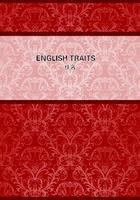
第38章
The introduction of these elements gives new resources to existing proprietors. A sporting duke may fancy that the state depends on the House of Lords, but the engineer sees, that every stroke of the steam-piston gives value to the duke's land, fills it with tenants; doubles, quadruples, centuples the duke's capital, and creates new measures and new necessities for the culture of his children. Of course, it draws the nobility into the competition as stockholders in the mine, the canal, the railway, in the application of steam to agriculture, and sometimes into trade. But it also introduces large classes into the same competition; the old energy of the Norse race arms itself with these magnificent powers; new men prove an over-match for the land-owner, and the mill buys out the castle. Scandinavian Thor, who once forged his bolts in icy Hecla, and built galleys by lonely fiords; in England, has advanced with the times, has shorn his beard, enters Parliament, sits down at a desk in the India House, and lends Miollnir to Birmingham for a steam-hammer.
The creation of wealth in England in the last ninety years, is a main fact in modern history. The wealth of London determines prices all over the globe. All things precious, or useful, or amusing, or intoxicating, are sucked into this commerce and floated to London. Some English private fortunes reach, and some exceed a million of dollars a year. A hundred thousand palaces adorn the island. All that can feed the senses and passions, all that can succor the talent, or arm the hands of the intelligent middle class, who never spare in what they buy for their own consumption; all that can aid science, gratify taste, or soothe comfort, is in open market.
Whatever is excellent and beautiful in civil, rural, or ecclesiastic architecture; in fountain, garden, or grounds; the English noble crosses sea and land to see and to copy at home. The taste and science of thirty peaceful generations; the gardens which Evelyn planted; the temples and pleasure-houses which Inigo Jones and Christopher Wren built; the wood that Gibbons carved; the taste of foreign and domestic artists, Shenstone, Pope, Brown, Loudon, Paxton, are in the vast auction, and the hereditary principle heaps on the owner of to-day the benefit of ages of owners. The present possessors are to the full as absolute as any of their fathers, in choosing and procuring what they like. This comfort and splendor, the breadth of lake and mountain, tillage, pasture, and park, sumptuous castle and modern villa, -- all consist with perfect order.
They have no revolutions; no horse-guards dictating to the crown; no Parisian _poissardes_ and barricades; no mob: but drowsy habitude, daily dress-dinners, wine, and ale, and beer, and gin, and sleep.
With this power of creation, and this passion for independence, property has reached an ideal perfection. It is felt and treated as the national life-blood. The laws are framed to give property the securest possible basis, and the provisions to lock and transmit it have exercised the cunningest heads in a profession which never admits a fool. The rights of property nothing but felony and treason can override. The house is a castle which the king cannot enter.
The Bank is a strong box to which the king has no key. Whatever surly sweetness possession can give, is tested in England to the dregs. Vested rights are awful things, and absolute possession gives the smallest freeholder identity of interest with the duke. High stone fences, and padlocked garden-gates announce the absolute will of the owner to be alone. Every whim of exaggerated egotism is put into stone and iron, into silver and gold, with costly deliberation and detail.
An Englishman hears that the Queen Dowager wishes to establish some claim to put her park paling a rod forward into his grounds, so as to get a coachway, and save her a mile to the avenue. Instantly he transforms his paling into stone-masonry, solid as the walls of Cuma, and all Europe cannot prevail on him to sell or compound for an inch of the land. They delight in a freak as the proof of their sovereign freedom. Sir Edward Boynton, at Spic Park, at Cadenham, on a precipice of incomparable prospect, built a house like a long barn, which had not a window on the prospect side. Strawberry Hill of Horace Walpole, Fonthill Abbey of Mr. Beckford, were freaks; and Newstead Abbey became one in the hands of Lord Byron.
But the proudest result of this creation has been the great and refined forces it has put at the disposal of the private citizen. In the social world, an Englishman to-day has the best lot. He is a king in a plain coat. He goes with the most powerful protection, keeps the best company, is armed by the best education, is seconded by wealth; and his English name and accidents are like a flourish of trumpets announcing him. This, with his quiet style of manners, gives him the power of a sovereign, without the inconveniences which belong to that rank. I much prefer the condition of an English gentleman of the better class, to that of any potentate in Europe, --whether for travel, or for opportunity of society, or for access to means of science or study, or for mere comfort and easy healthy relation to people at home.